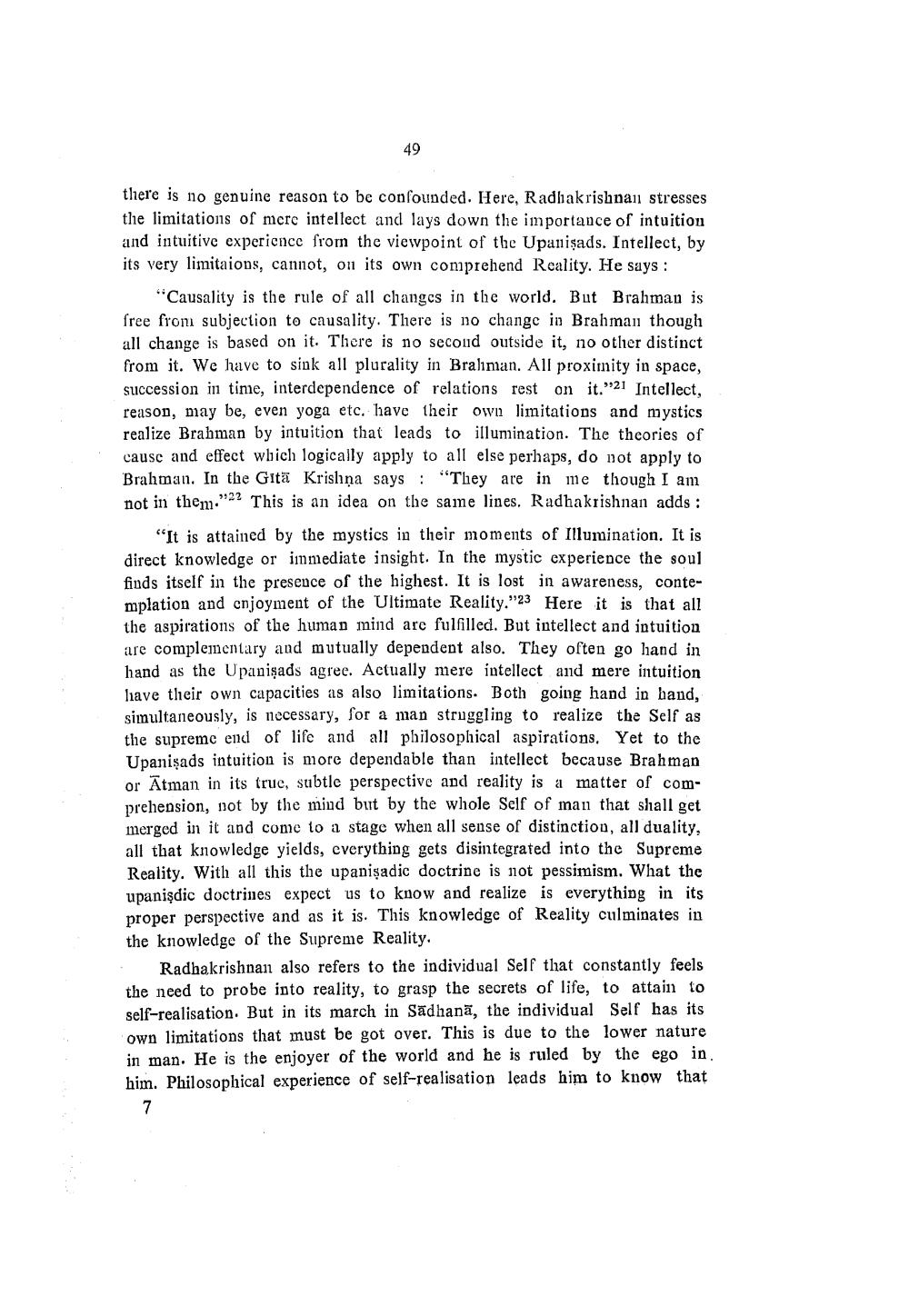________________
49
4
there is no genuine reason to be confounded. Here, Radhakrishnan stresses the limitations of mere intellect and lays down the importance of intuition and intuitive experience from the viewpoint of the Upanişads. Intellect, by its very limitaions, cannot, on its own comprehend Reality. He says:
**Causality is the rule of all changes in the world. But Brahman is free from subjection to causality. There is no change in Brahman though all change is based on it. There is no second outside it, no other distinct from it. We have to sink all plurality in Braliman. All proximity in space, succession in time, interdependence of relations rest on it."21 Intellect, reason, may be, even yoga etc. have their own limitations and mystics realize Brahman by intuition that leads to illumination. The theories of cause and effect which logically apply to all else perhaps, do not apply to Brahman. In the Gitä Krisliņa says: "They are in me though I am not in them.""? This is an idea on the same lines. Radhakrishnan adds :
"It is attained by the mystics in their moments of Illumination. It is direct knowledge or immediate insight. In the mystic experience the soul finds itself in the presence of the highest. It is lost in awareness, contemplation and cnjoyment of the Ultimate Reality."23 Here it is that all the aspirations of the human mind are fulfilled. But intellect and intuition are complejnentary and mutually dependent also. They often go hand in hand as the Upanişads agree. Actually mere intellect and mere intuition liave their own capacities as also limitations. Both going hand in hand, simultaneously, is necessary, for a man struggling to realize the Self as the supreme end of life and all philosophical aspirations. Yet to the Upanişads intuition is more dependable than intellect because Brahman or Ātman in its true, subtle perspective and reality is a matter of comprehension, not by the mind but by the whole Self of man that shall get merged in it and come to a stage when all sense of distinction, all duality, all that knowledge yields, everything gets disintegrated into the Supreme Reality. With all this the upanişadic doctrine is not pessimism. What the upanişdic doctrines expect us to know and realize is everything in its proper perspective and as it is. This knowledge of Reality culminates in the knowledge of the Supreme Reality
Radhakrishnan also refers to the individual Self that constantly feels the need to probe into reality, to grasp the secrets of life, to attain to self-realisation. But in its march in Sadhanā, the individual Self has its own limitations that must be got over. This is due to the lower nature in man. He is the enjoyer of the world and he is ruled by the ego in him. Philosophical experience of self-realisation leads him to know that




